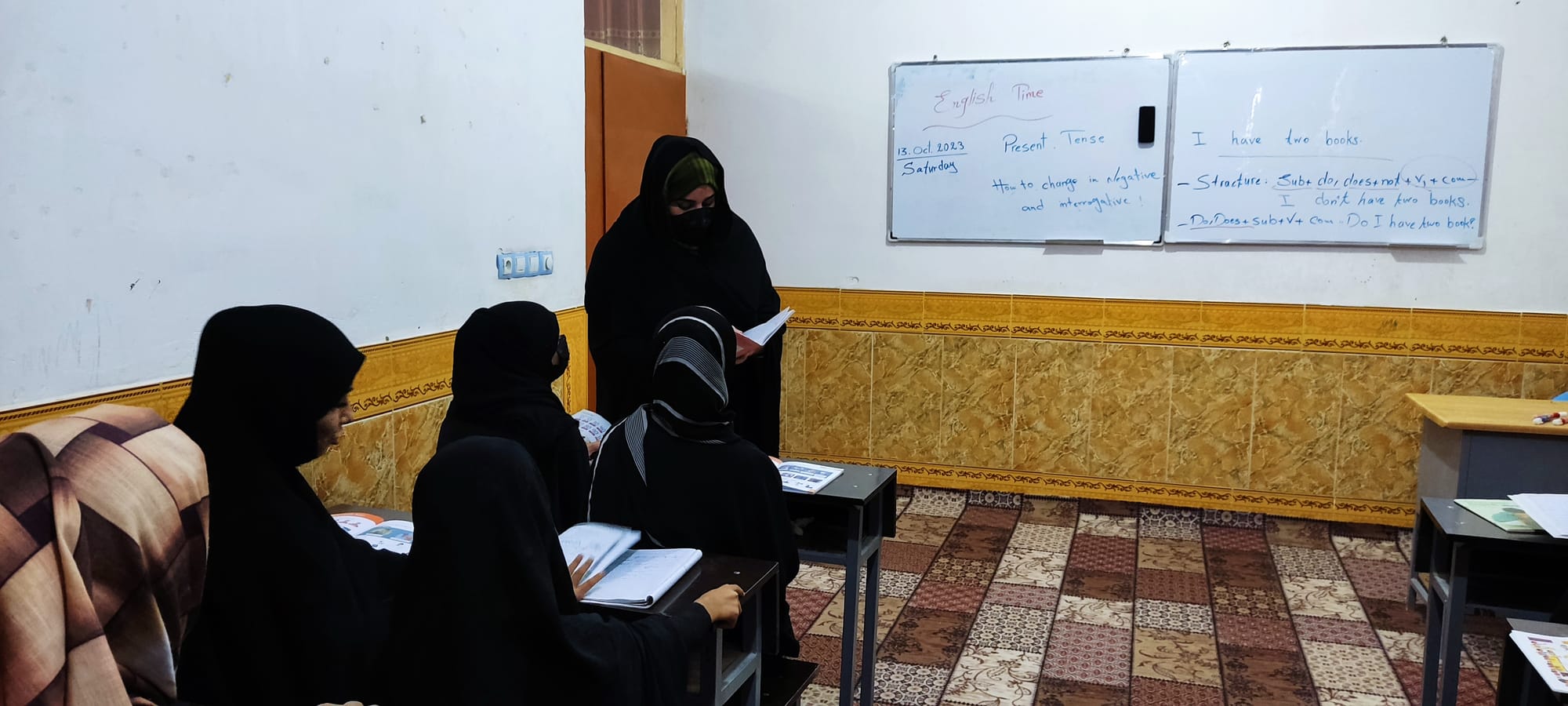Taliban Approve Academy for Women
A woman in southwestern Nimroz province has established an education facility offering courses in computer science, religious studies, and English. This initiative aims to provide educational opportunities for women and girls barred from seeking education above 6th grade.
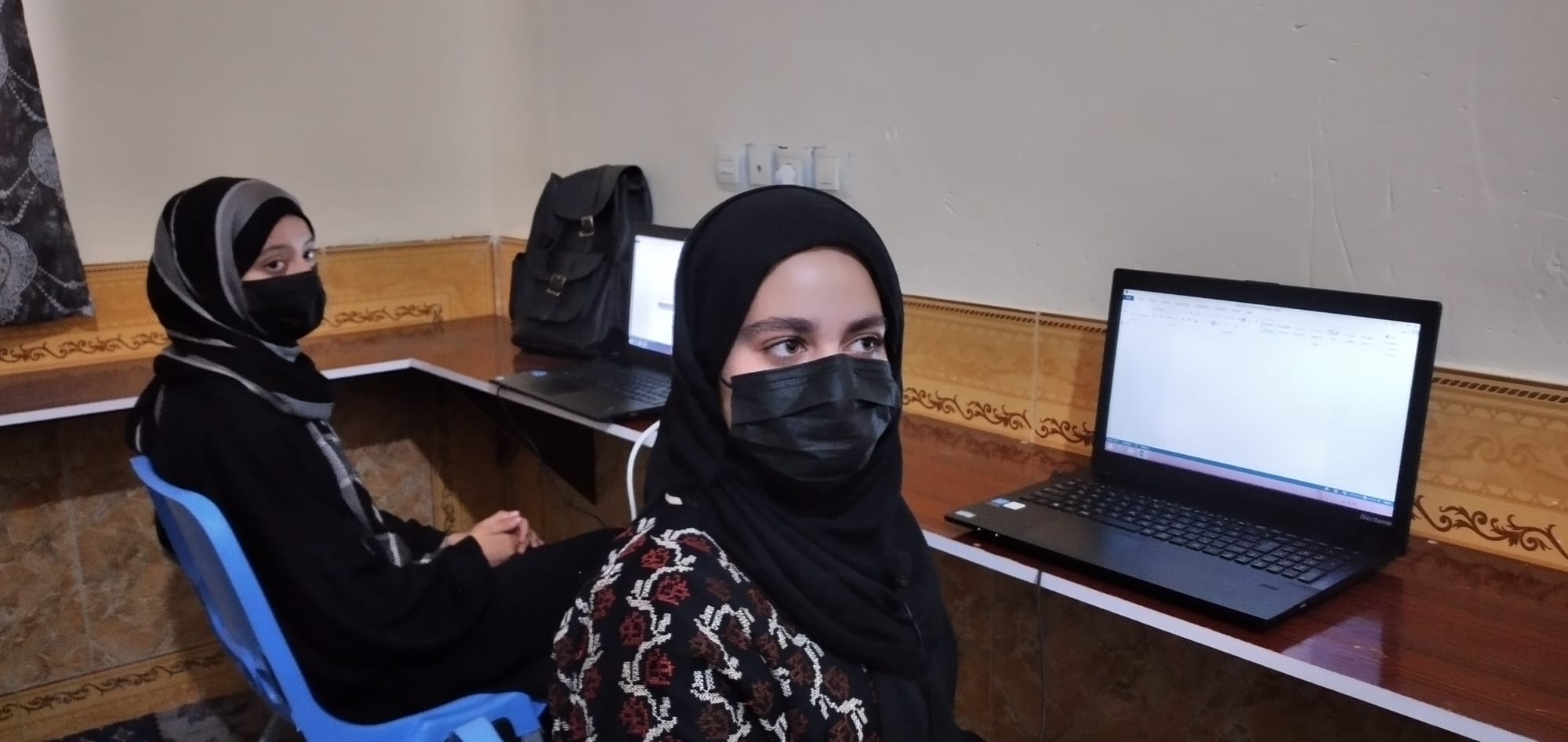
Alive-in is a not-for-profit media agency that mentors journalists from underrepresented communities to increase local and national understanding.
If you are able to support our work financially, please click the button below.
ZARANJ, NIMROZ — “Today we will teach you how we can change the forms of sentences in simple present tense to negative and interrogative,” Homa Anwari, a teacher at a local learning center in southwestern Nimroz province explains to her students.
Wearing a full head-to-toe black hijab, with her mouth covered by a black mask with dark gray floral pattern, following the Taliban’s dress code, Homa teaches an English class at Parwaz, a woman-only education center.
Quietly attentive to Ms. Anwari, with their books lying open on the desk in front of them, the students listen to the day’s English lesson. Most students wear all black, just one woman breaks the pattern by wearing a black scarf with white and gray stripes. This is one of the three classrooms at Parwaz Academy. The Academy is a women-only learning center that offers English, computer literacy, and classes on the holy Quran for two groups of 60 students in two-hour shifts.
ZARANJ, NIMROZ — Students learn English, computer programs, and religious subjects at a local learning center in Zaranj, the capital of southwestern Afghanistan’s Nimroz province. Videos by: Samira Wafa
Educational and development opportunities for women and girls in southwestern Afghanistan’s Nimroz province were limited even during Afghanistan’s previous government. After the Taliban took control of the country in August 2021, the only English language center for girls in Nimroz was closed.
Ms. Anwari opened Parwaz Academy after she obtained approval from Afghanistan’s Ministry of Education under the current Taliban government. Although the Taliban banned girls above 6th grade in most of Afghanistan from seeking education following their victory, this approval allows Ms. Anwari to provide classes in English and computer basics for women.
Mawlawi Gulbuddin Sharifi, the Deputy Education Director for Nimroz, said, “According to the Islamic Emirate’s policy, Girls are barred from seeking education above 6th grade because they were mixing with boys. But Madrassas and Islamic education both public and private operate until the 14th grade, providing a separate space for girls with female instructors.”
Mr. Sharifi considers Islamic and modern education mandatory for both men and women, “God’s command and hadith from the Prophet is that men and women must study, but according to Islamic Sharia law.”
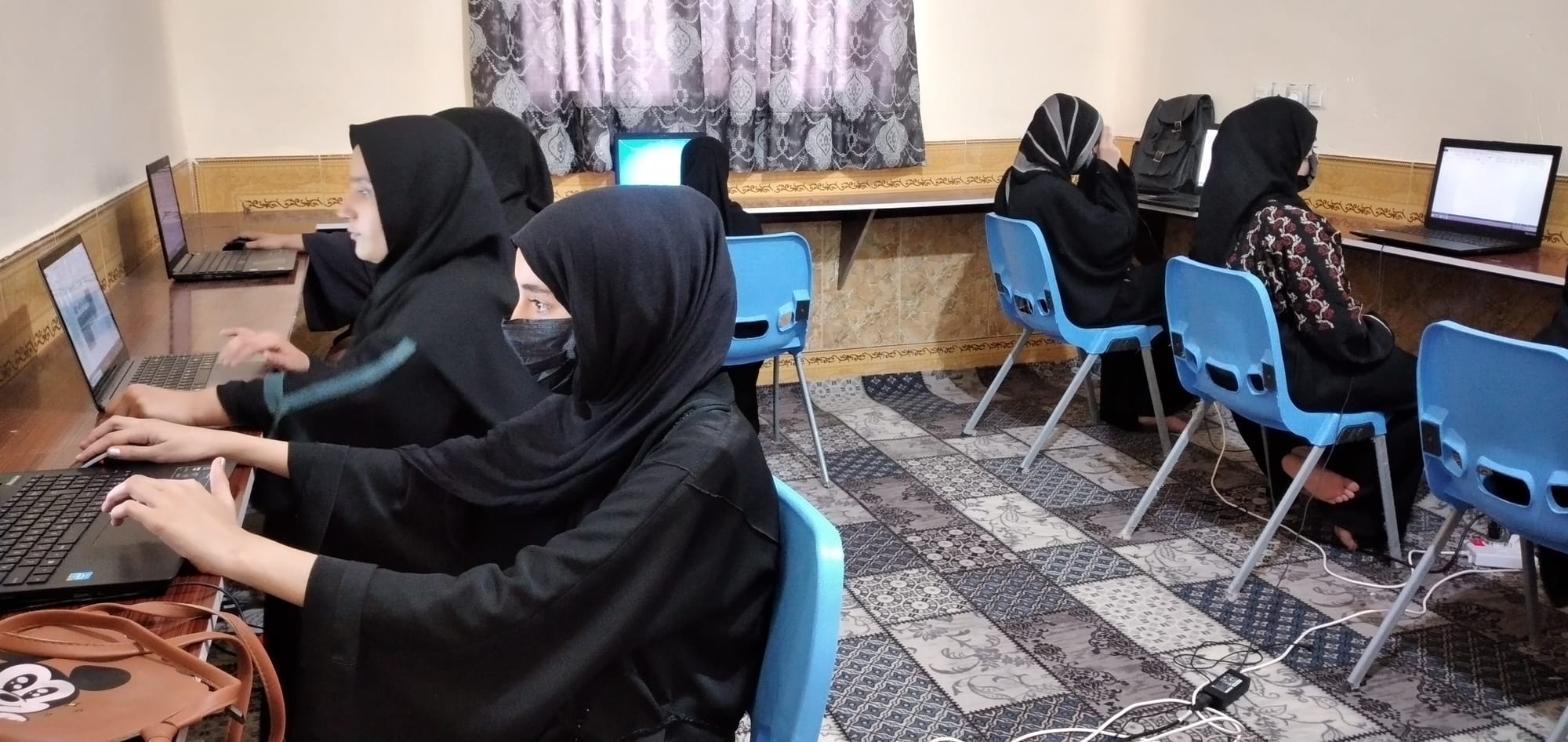
Each student pays 800 Afghanis ($11) per month. The learning center is currently at capacity and can only enroll new students following the end of the term. For students learning English the term lasts six months, while for computer basics the length of the term is three months. The center employs three teachers, including Ms. Anwari, paying each 7,000 Afghanis ($96) per month.
Ms. Anwari has a master’s degree in law and political science. She was a professor at a local university in her home province before the Taliban takeover of Afghanistan in August of 2021. Ms. Anwari currently manages and teaches at the academy while serving as the academic director of a local school.
“The drive to help and serve women led me to the creation of this academy. I wanted to fulfill my duty to the hopeless women and girls left behind in education,” Homa said. Homa is a women’s rights activist who has served as a lawyer, and legal advisor in Nimroz for the past 12 years.
Homa spent around 150,000 Afghanis ($2,071) on equipment and leasing space for the center, the majority of which she borrowed from friends. The building is like many Afghan buildings, mostly white, with patterned dark yellow and brown marbling. Each classroom is adorned with a whiteboard. A standalone cabinet with a glass front showcases a few rows of books, several copies of the holy Quran among them.
According to Homa, the academy has not received any support from governments, aid agencies, or private entities, but she encourages donors to support her in expanding the operation.
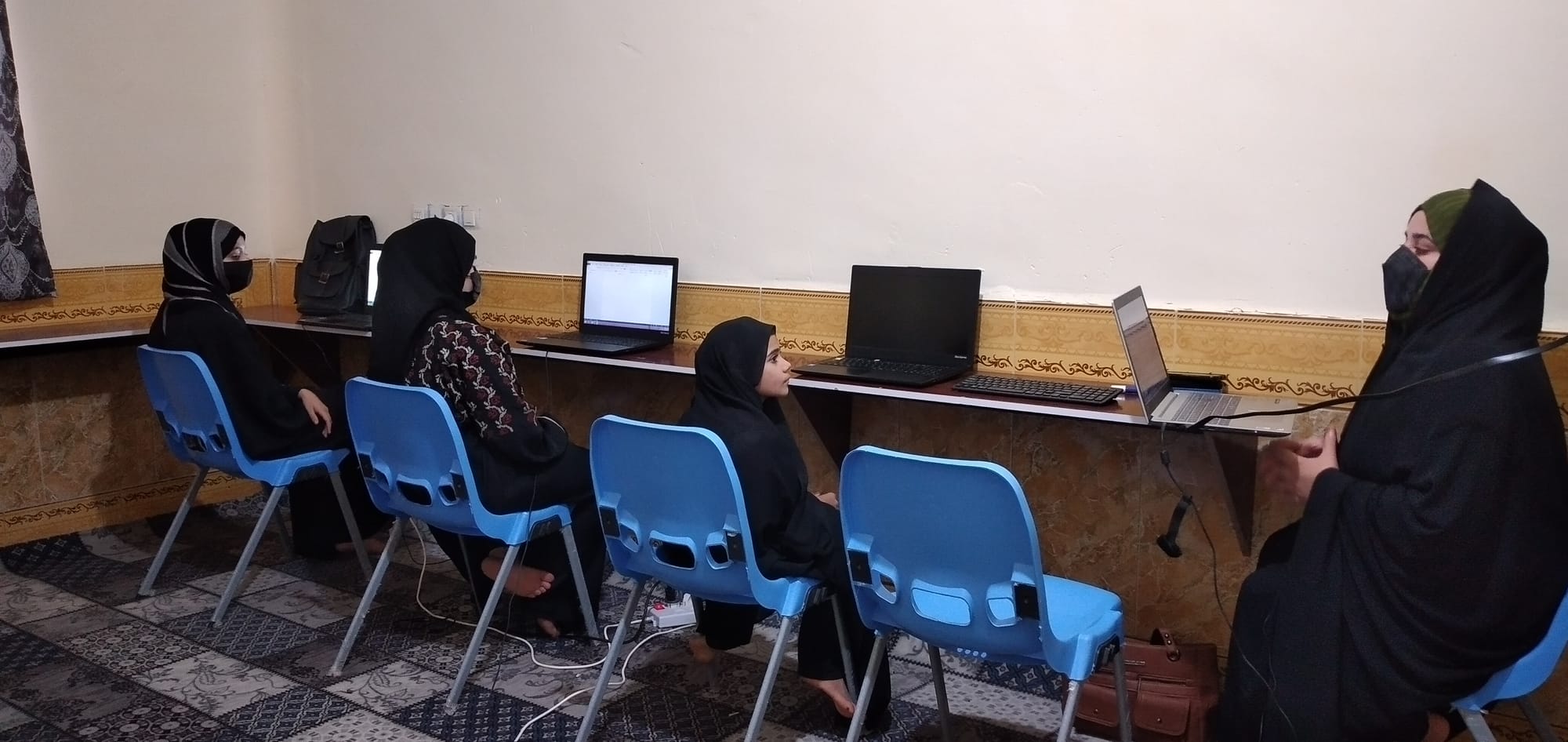
Husna Arbab, who attends 7th-grade at a private local school, said she is happy to learn computer programs at Parwaz, given the current restrictive conditions.
An 11th-grade student who spoke to Alive in Afghanistan on the condition of anonymity encouraged girls barred from education to take advantage of the program and the great opportunity the learning center provides.
“The Islamic Emirate (the Taliban’s official name for the current government) must open schools and universities for girls,” the student said.
Maryam Ahmadzai, a teacher learning computer programs at Parwaz, said, “I enrolled here in addition to working and being a mother to three children.”
Ms. Ahmadzai urges the Taliban to immediately reopen schools and universities for girls.
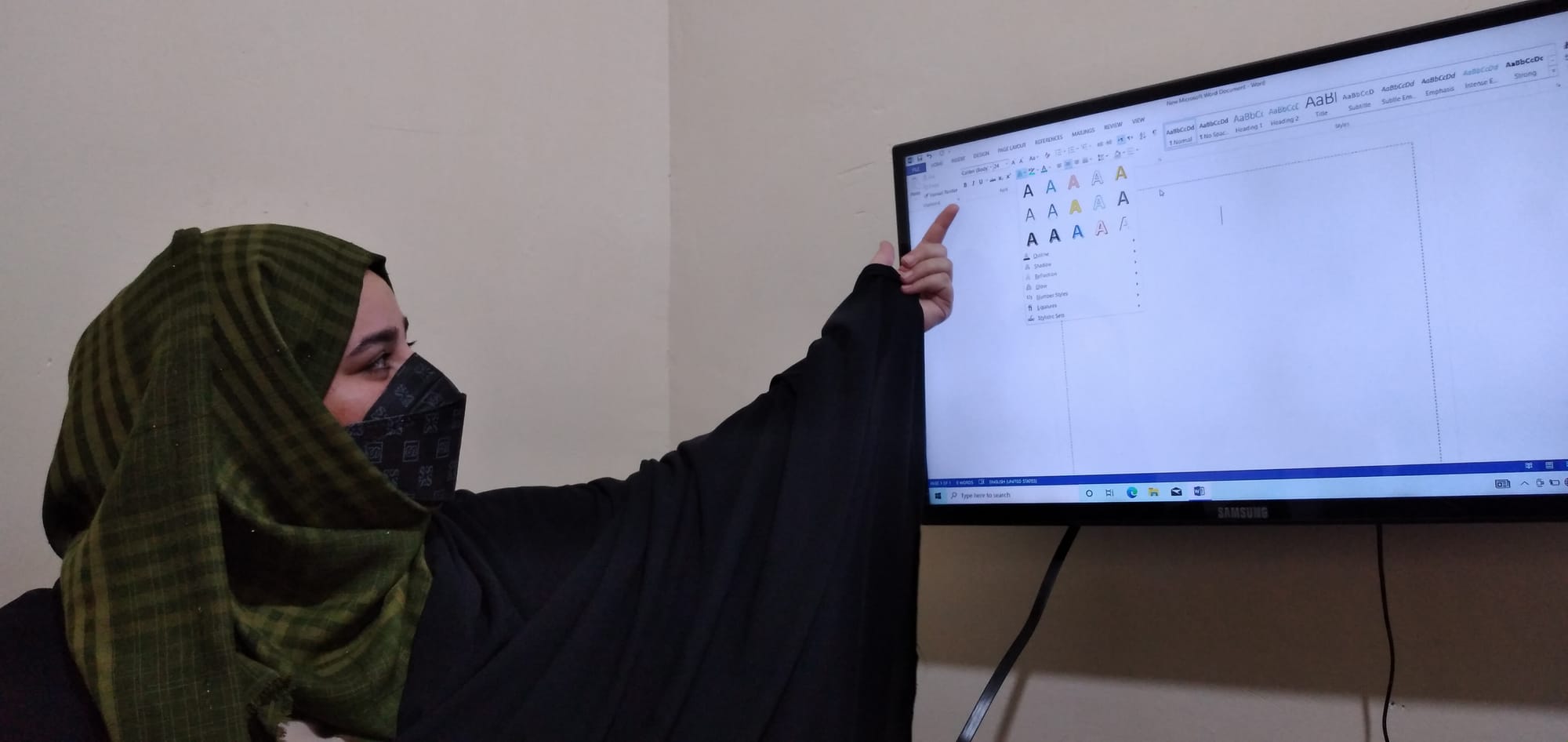
The bright screens of the laptops the girls browse are like a slideshow enticing my eyes to dart from one screen to the other.
Fatima, not her real name, is another student learning English at Parwaz. She said, “I am really happy that a place like this opened to offer modern education alongside religious studies. This is a great service for girls.”
Aisha, a student learning the Quran at Parwaz, said she became depressed after girls were barred from education above 6th grade, but expressed happiness when talking about Parwaz, “I was in 8th grade when schools closed and have been home since.”
Latifa, also not her real name, is another one of the teachers at Parwaz. She described the girls’ enthusiasm for learning as hopeful, “Most students have changed positively after starting classes, eagerness to learn evident in their faces, their laughs ringing out.”
Welcoming the establishment of Parwaz Academy, Deputy Education Director Sharifi said, “If education to women is provided following Islam and the country’s regulations; with female teachers fully observing Islamic hijab, we will not reject it, rather say it is good. I agree that every man and woman in our society should be literate in both religious and modern education.”
